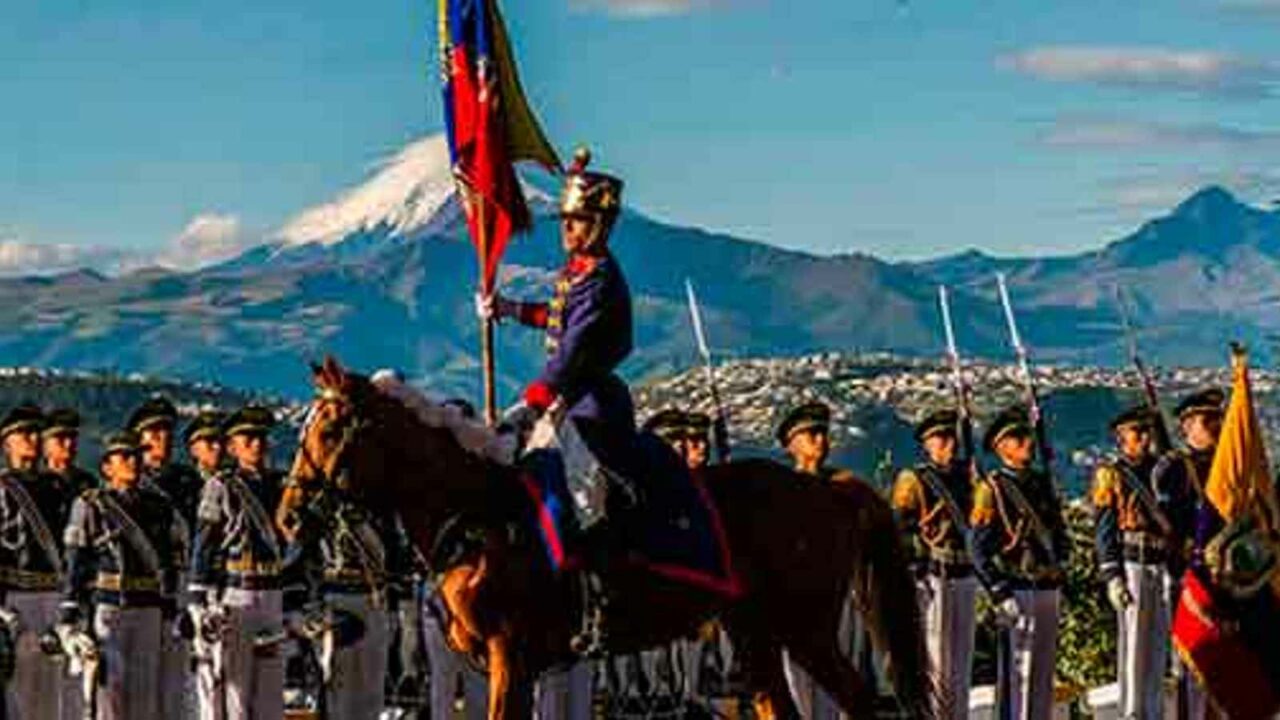The 24th of May, Battle of Pichincha Day, is of particular significance to Ecuadorians. It is a small but highly significant battle that ended Spanish authority over the colonies. On this day in the 19th century, a battalion of insurgents engaged Spanish royalist soldiers on the Cerro Pichincha, an Andean volcano, and won the first of a series of victories that eventually led to the establishment of independent nations throughout Latin America. The Ecuadorian government has designated this date as a public holiday; if May 24 falls on a weekend, recommend a holiday on Friday or Monday.
DAY OF THE HISTORY OF THE BATTLE OF PICHINCHA
Beginning in the nineteenth century, the once-glorious and potent Spanish Empire began to lose control over its colonies. An independence movement from Spanish rule was spreading Latin America.
After liberating numerous countries and cities from Spanish authority, independence leader Antonio José de Sucre y Alcalá, a close friend and military subordinate of the renowned political and independence leader Simón Bolvar, turned his attention to the Andean highlands. They liberated Guayaquil and then continued north. Their primary objective was to liberate Quito, which resided beneath the shadow of the Pichincha volcano. Sucre led his troops up the foothills of the Pichincha in an attempt to ambush the Spanish royalist soldiers without their knowledge. Unfortunately, the dissidents were discovered, and the royalists met them on the volcano’s slopes.
Both parties suffered casualties on the rocky and treacherous slopes of the steep volcano as the Battle of Pichincha commenced. However, Sucre’s forces prevailed in this skirmish, evicting the Spanish from Quito for good. Thus, the province was liberated from its Spanish masters. The significance of this battle lies in the fact that it eradicated Spanish resistance to independence movements in the north of the Republic of Colombia, allowing independence leaders to travel freely throughout the land. The Province of Quinto was incorporated into the Republic of Columbia with the enthusiastic support of the local population. Eight years later, Quito, now known as Ecuador, Guayaquil, and Cuenca seceded from the Republic of Columbia to form the Republic of Ecuador. Even today, Ecuadorians commemorate this pivotal event which led to their independence from the Spanish Empire.
FIVE INTERESTING FACTS CONCERNING THE BATTLE AND QUITO
- The Battle of Pichincha lasted only three hours, beginning with the first clash and ending with the final withdrawal.
- To honour the liberation forces, Ecuador erected a monument at the site of the conflict and named the adjacent museum “La Cima de la Libertad.”
- Quito ranked second on the first list of World Heritage Sites, established in 1978, and was the first city to receive this distinction.
- Quito is one of the only capital cities in the world to be surrounded by an active volcano, the Pichincha.
- Many 16th- and 17th-century palaces, temples, and schools were constructed during the colonial era in the capital of Ecuador, which is renowned for preserving its colonial architecture.
THE BATTLE OF PICHINCHA DAY DATES
| Year | Date | Day |
|---|---|---|
| 2023 | May 24 | Wednesday |
| 2024 | May 24 | Friday |
| 2025 | May 24 | Saturday |
| 2026 | May 24 | Sunday |
| 2027 | May 24 | Monday |


















